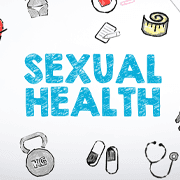How Vitamin C Deficiency Impacts the Elderly: A Silent Threat Revisited
In This Article
How Vitamin C Deficiency Impacts the Elderly: A Silent Threat Revisited
Sreemoyee
Updated on February 08, 2025
Medically verified by Dr. Arya
Fact checked by Dr. Fazeela

Wellness
10 min read
This deficiency, often overlooked, can lead to a range of serious health problems, particularly for the elderly.
Care to know more about it? In this blog by Karepedia, we’ll explore how vitamin C deficiency affects older adults, what the signs are, and how you can prevent it.
Why Is Vitamin C Important?
Vitamin C, also known as ascorbic acid, is essential for several bodily functions. It supports immune health, helps form collagen (which is important for skin, bones, and connective tissues), aids in wound healing, and boosts the absorption of iron. Since our bodies can't produce or store vitamin C, we need to regularly consume it through our diet.
For the elderly, maintaining adequate vitamin C levels is even more crucial, as it can impact their energy levels, skin health, and overall immune function.
The Case of Vitamin C Deficiency in the Elderly
The recent CMAJ study brought to light the case of a 65-year-old woman suffering from a host of nonspecific symptoms like fatigue, leg pain, and skin lesions. What was initially puzzling turned out to be scurvy, a direct result of vitamin C deficiency. This woman's mobility issues and limited access to fresh food led her to rely on canned goods, lacking the necessary nutrients.
Her case isn't an isolated one. In today’s world, older adults who face food insecurity, mobility limitations, or restrictive diets can easily miss out on vital nutrients, including vitamin C. Conditions like arthritis or chronic pain, which limit an older person’s ability to shop or prepare meals, often lead to a reliance on processed foods that lack essential vitamins.
Key Signs of Vitamin C Deficiency
The symptoms of vitamin C deficiency in older adults are often subtle and can be mistaken for other conditions. Common signs include:
- Abnormal bleeding or bruising: Vitamin C is necessary for blood vessel health, and without it, blood vessels can become fragile.
- Fatigue and weakness: A deficiency can affect energy levels and lead to overall feelings of tiredness.
- Slow wound healing: Vitamin C helps in tissue repair, and its absence can cause wounds to take longer to heal.
- Joint pain: Low vitamin C levels can cause inflammation and pain in joints.
- Skin changes: Scaly, dry, or discoloured skin can be an indication of low vitamin C levels.
In severe cases, prolonged vitamin C deficiency can lead to scurvy, which manifests as swollen gums, tooth loss, and even internal bleeding.
Why the Elderly Are at Higher Risk
Elderly individuals are more susceptible to vitamin C deficiency for several reasons. As mobility declines, access to fresh fruits and vegetables can become limited, particularly for those living alone or on a fixed income. In addition, some older adults may follow restrictive diets or suffer from chronic health conditions that limit nutrient absorption, such as gastrointestinal disorders. Even smoking, a habit some seniors continue, depletes vitamin C levels faster than in non-smokers.
 10mint
10mintSexual Health Matters: How To Maintain Your Sexual Health ?
 10mint
10mintYour Guide to Sexual Health Screening and Preventive Measures
 10 mints
10 mintsSTDs in Women: Comprehensive Guide on Symptoms and Treatments
Get a Callback Now
The Link to Scurvy
The study from CMAJ serves as a wake-up call that scurvy is not a disease of the past. It can—and does—affect individuals today, especially those with poor nutrition. What makes the case even more striking is that the patient’s symptoms improved once vitamin C was added to her treatment plan, confirming that simple dietary changes can dramatically improve quality of life.
What Can You Do?
Preventing vitamin C deficiency is easier than you might think. Here are some tips to ensure that you or an elderly loved one are getting enough vitamin C
1. Eat Vitamin C-Rich Foods: Fresh fruits and vegetables are the best sources of vitamin C. Try to include items like oranges, strawberries, kiwi, bell peppers, and broccoli in daily meals.
2. Consider a Supplement: If dietary restrictions or access to fresh produce are issues, a vitamin C supplement may be a good option. Always consult with a healthcare provider before starting any new supplements.
3. Stay Informed: Be aware of the symptoms of vitamin C deficiency, especially in elderly family members. If you notice unusual bruising, bleeding gums, or persistent fatigue, it's worth checking their vitamin levels.
4. Encourage Variety in Diet: Meals should include a variety of food groups to ensure balanced nutrition. Frozen vegetables can be a good alternative when fresh produce isn’t available, as they retain most of their nutrients.
By raising awareness and ensuring that the elderly have access to the right nutrients, we can help prevent vitamin C deficiency and its associated health risks. The next time you plan a meal for yourself or a loved one, remember: a little extra orange or broccoli could make a big difference!
Vitamin C is vital for immune function, collagen production, and tissue repair, making it particularly important for elderly individuals.
The recent CMAJ study highlights that vitamin C deficiency can still lead to scurvy, even in today’s world, especially in populations with limited access to fresh food.
Symptoms of vitamin C deficiency are often nonspecific and can include fatigue, abnormal bleeding, and slow wound healing. The good news is, it’s easy to prevent with the right dietary changes.
Source Links
Canadian Medical Association Journal (CMAJ) Study on Vitamin C Deficiency
National Institutes of Health (NIH) - Office of Dietary Supplements
Mayo Clinic - Vitamin C Deficiency

